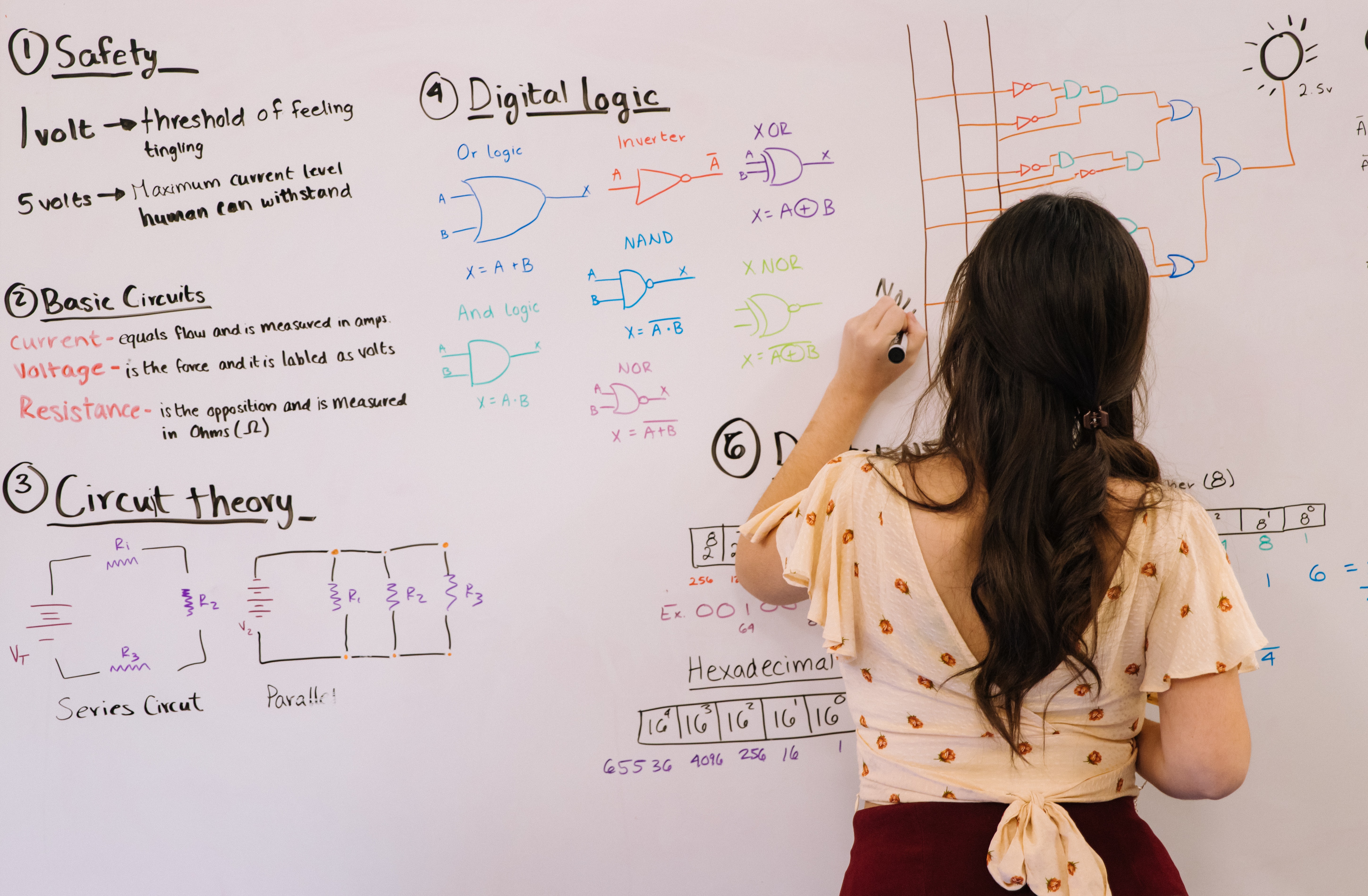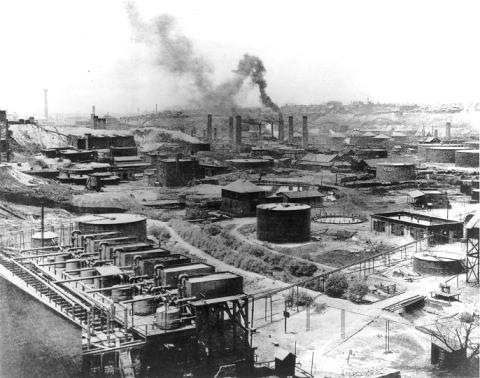
(Unsplash/Jeswin Thomas)
I don't know about you, but there are things that concern me about life, as it has developed, which I would rather not admit.
Every so often, it seems, society outruns itself. It fixes on the particulars of an era, casts all caution to the wind, and throws itself — mind, soul, spirit and future — onto the latest magnet of the age.
Then, all of a sudden, everything changes. Whatever drove society before this new period simply melts away. Quietly. Uncaringly.
With the industrial revolution of the 19th century, for instance, even the slightest quiver of change opened fissures of major import in what had been a basically agricultural world. Most Americans had never traveled more than several miles away from their homes before this. Life revolved around horses who ambled through life at a steady pace, and we with them. Few men were educated and even fewer women.

Standard Oil Refinery No. 1 in Cleveland, Ohio, in 1889 (Wikimedia Commons)
And meanwhile, the world around us was stumbling through strikes, labor unions and even war.
But in the 20th century came tangles of railroad tracks, new roads, super highways — and cars.
And with cars came a moment of massive change. A new world. A new approach to life. A different sense of time. Another way of living — whatever its values. Where cars were concerned, for instance, people could move from place to place, however far away from their homes.
At this point, the very notion of "the American family" had fragmented even more. It found itself far flung from its past, basically one-generational now, more independent — even more alone — than families a generation before them.
Young people left home in search of either alluring work or hard-to-find work rather than take over the local business from their parents.
Middle-aged couples watched the family disappear but clung to the nearest housing estates in hopes of not having to move next to strangers.
The elderly registered early for elder care since it was clear that none of the kids would get home more than a week or so a year.
So they bought themselves a big computer screen to watch their grandchildren grow up on Zoom.
The stress of change, the burdens, the emptiness, the resettling from one kind of society to another always overshadows the end of the old society. And this one made the nuclear family more nuclear than ever.
We made all those switches relatively well, however much we may still long for the quieter, more intimate world that grew us.
Instead, we are now caught up in a world without familiar neighborhoods, without people whose families have been there for years, without intimacy, without generations in which we once grew from one era of music, and winning regional schools and local arts to learn from.
Perhaps, whether we realize it or not, our families may also be less one history teacher and English teacher and debate team and school librarian to introduce this new culture to the great books. We have lost a panoply of history teachers at the dinner table now to make this new generation probe the difference between democracy and communist philosophy. Or there simply aren't enough people in the old book group in which to argue with about which great character was right or wrong or confused or manipulative or a new Hamlet, in our own lifetime.
The question is an urgent one: How shall we grow this new generation an adult soul? Where shall we get practice in being human beings? On what philosophical principles? For what dream? With what hope? And what kind of changes did we miss in the process?
Advertisement
Our new world now is the world of STEM. Everyone is running to get a piece of life's most recent recipe for salvation. This time it is the marvels of science, of technology, of engineering, of math that will save us. But when we're all tired out from doing the equations, sick of designing new gadgets, discouraged with physics, rattled by the repetition of the numbers in math, it may be time to look again at the interplay between mind and soul, between what is and what must be if humanity is ever to be fully human again.
It may be time for an audit of old values and new social virtues.
In the last 10 years, student commitment to STEM courses of college curriculums has risen dramatically while humanity and liberal arts courses have plummeted. And so what?

(Unsplash/Christopher Burns)
Well, here's so what.
Where will we go to learn how to be social leaders now that we know how to get right answers where only right answers are the prize we're offering this decade's intellectuals? In a world full of multiple choices and distinct political positions and global decision-making in the midst of moral, immoral and amoral disconnect, how shall we prepare for that? When the scientific possibilities we have discovered can be used for both good and bad, from what perspective shall this decade's intellectual stars make their conclusions, or decide between them? On what basis will this next generation weigh character over acquisition?
While our cars are getting faster and better every year, our ideas, our feelings, our insights and our freedom of belief are getting less and less important. Technology counts, social status counts, capital counts, but where will we go to decide what shouldn't be done even if we have suddenly figured out how to do it?
The historic truth is that the first thing dictators do is suppress thought.
While we are burning books in this country, these are important things to think about. When we allow politicians to decide our medical plans, we need to rethink some things. When we destroy the educational system of the country, whitewash its history so it can never repent or reject its errors in the future, we are coming dangerously close to the edge of a cliff called the demise of democracy.
When politicians and judges take the will of the people away from the people themselves, the humanity of humanity has been sold off by the very people who should be protecting and increasing it.
As democracy teeters and wisdom is out of style, I want to know who will stand up in the great chambers of our institutions and say no to profit gained by deregulation of the banks; no to profit over principle; no to political correctness over character. And why will they say it? Will it be because they have taken the answers in STEM as knowledge enough or because something they heard in the history of the humanities had touched and turned their souls?
From where I stand, for the sake of life as it is developing under the tutelage of this latest magnet of the age, I hope we are becoming more knowing than we are smart.








